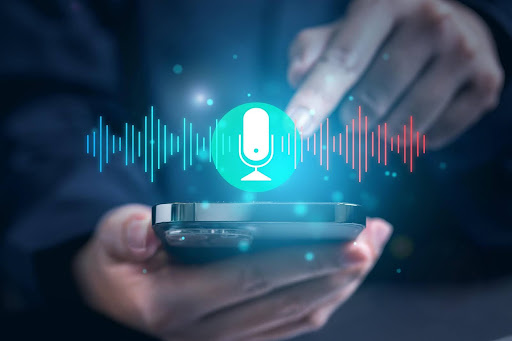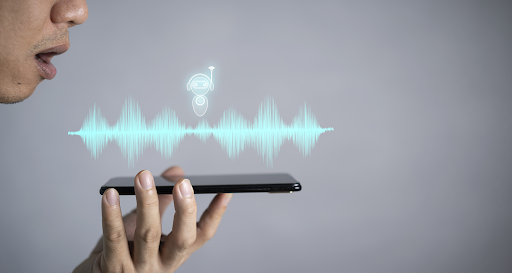How Can AI Voice Agents Help Reduce Call Center Overload in Healthcare?
Call centers are frequently the hub of patient connection in the modern healthcare system, but they are also constantly under stress. Human agents are overburdened with scheduling appointments, responding to routine inquiries, and directing patients to the appropriate department. This is where voice-enabled AI, or AI agents for businesses, can be revolutionary. Without hiring more workers, these technologies are assisting healthcare providers in maintaining phone lines, freeing up staff time, and improving patient experiences.
The Problem: Overloaded Lines and Stressed Staff
Healthcare call centers are busier than ever, as everyone knows. Whether contacting to arrange a check-up, obtain test results, or inquire about insurance coverage, patients anticipate prompt responses. However, wait times increase dramatically and worker fatigue becomes a significant concern when hundreds or even thousands of calls are received every day. This is a patient satisfaction concern as well as an operational one.
The Solution: AI Voice Agents to the Rescue
Artificial intelligence (AI) voice agents are computer programs that can comprehend, interpret, and react to natural language in real time. They are there to manage the heavy, repetitive duties that take up a significant amount of a call center's time, not to replace human empathy. Let's examine three ways they can affect healthcare right away.
1. Automating Appointment Bookings
Taking care of appointment requests is one of the most time-consuming jobs for any healthcare call center. This typically implies that an agent must personally verify patient information, check availability, and provide booking confirmations. This entire process can be handled by an AI voice assistant, 24/7. It may validate a patient's reservation, provide them a range of available times, and even send follow-up reminders by pulling data from the provider's scheduling system. Patients no longer have to wait a lengthy time, and human agents may concentrate on more intricate questions.
2. Answering Frequently Asked Questions (FAQs)
“How do I prepare for my MRI?” “Do you accept my insurance?” “What are your opening hours?” Although these inquiries are crucial, call center employees lose precious time addressing them repeatedly. AI voice assistants can be trained to provide prompt, accurate, and current information about services, insurance plans, or directions for scheduling an appointment. In addition to reducing the number of calls, this guarantees that patients always receive accurate and consistent responses.
3. Intelligent Patient Routing
Sometimes, patients are unsure about which department or specialist they should contact. They could have to be transferred several times before they get to the correct person in a traditional call center, which would be annoying for all parties. In order to determine a caller's needs and direct them to the appropriate department or specialist, AI voice agents can employ conversational prompts. This guarantees that critical cases receive the attention they require without needless delays and cuts down on call handling times.
Why Healthcare Providers Are Embracing This Tech
Healthcare is a fast-moving, high-stakes environment. Providers are under pressure to deliver timely, accurate, and compassionate service at scale. AI voice agents are attractive because they:
- Operate 24/7 without additional staffing costs
- Reduce call wait times and operational bottlenecks
- Improve staff morale by removing repetitive workloads
- Offer multilingual support for diverse patient populations
By offloading routine interactions, human agents have more bandwidth for the cases that truly require empathy, nuanced understanding, and problem-solving.
AI Voice Agents Are Getting Smarter
AI voice systems now use significantly more advanced technologies. These agents are now able to comprehend context, identify intent, and modify their responses because of machine learning and natural language processing (NLP). For healthcare professionals, this translates into more organic dialogues that seem truly beneficial and fewer "robotic" exchanges. Some AI solutions even integrate with electronic health record (EHR) systems, allowing them to provide personalized responses based on a patient’s medical history or appointment records, something that was once the exclusive domain of human agents.
The Bigger Picture: AI in Business Operations
While this blog focuses on healthcare, the benefits of voice automation stretch across industries. From retail to finance, AI agents for businesses are streamlining operations, improving customer experiences, and helping organizations scale without overburdening their teams. In healthcare, these benefits translate directly to better patient outcomes and happier staff.
Looking Ahead
The adoption of AI voice agents in healthcare is no longer a question of “if,” but “when.” Early adopters are already seeing reduced call center strain, faster patient service, and higher satisfaction scores. As the technology continues to evolve, its role will expand, from appointment scheduling to more complex patient support scenarios.
Ready to explore how AI voice agents can transform your healthcare call center? Discover cutting-edge solutions designed to boost efficiency and patient satisfaction at https://www.aseto.ai/en.


